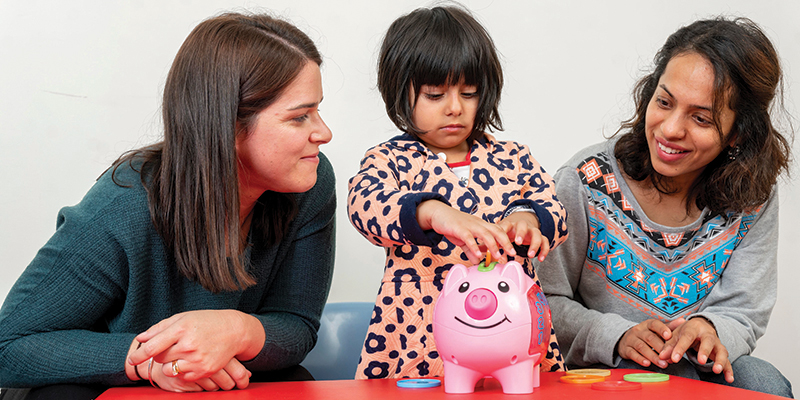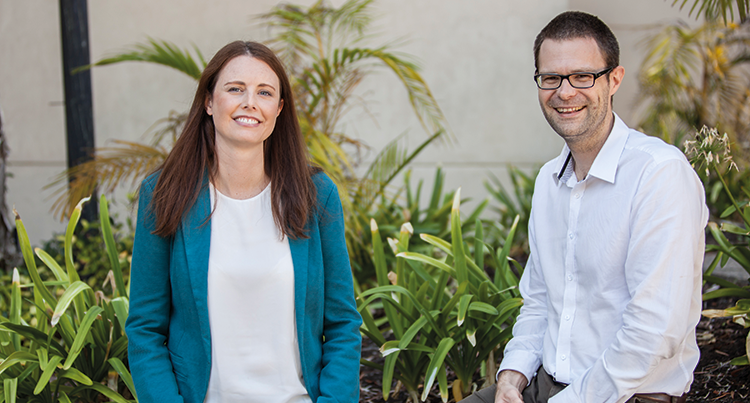Search
Research
A pilot randomised controlled trial of a telehealth-delivered brief ‘Sleeping Sound Autism’ intervention for autistic childrenAccess to behavioural sleep intervention is beneficial for autistic children, yet many families face barriers to access associated with location and time. Preliminary evidence supports telehealth-delivered sleep intervention. However, no studies have evaluated brief telehealth sleep intervention.
Research
Feasibility of a 2-minute eye-tracking protocol to support the early identification of autismWe tested the potential for Gazefinder eye-tracking to support early autism identification, including feasible use with infants, and preliminary concurrent validity of trial-level gaze data against clinical assessment scores. We embedded the ~ 2-min 'Scene 1S4' protocol within a comprehensive clinical assessment for 54 consecutively-referred, clinically-indicated infants (prematurity-corrected age 9-14 months).
Research
Early autism symptoms in infants with tuberous sclerosis complexWe examined early signs of ASD in infants wit tuberous sclerosis complex, approximately 50% of whom will meet criteria for ASD by age 3.
Research
Hypermasculinised facial morphology in boys and girls with Autism Spectrum Disorder and its association with symptomatologyThis is the first study demonstrating facial hypermasculinisation in ASD and its relationship to social-communication difficulties in prepubescent children
Research
TOBY play-pad application to teach children with ASD-A pilot trial.To investigate use patterns and learning outcomes associated with the use of Therapy Outcomes By You (TOBY. Playpad, an early intervention iPad application.
Research
Common variation near ROBO2 is associated with expressive vocabulary in infancyIn this paper we conduct a genome-wide screen and follow-up study of expressive vocabulary in toddlers of European descent from up to four studies of the...

Be involved in the Sibling Snapshot Project! Researchers from The Kids Research Institute Australia are conducting research which explores the unique

Join a Focus Group for the Sibling Support Study! Researchers from The Kids Research Institute Australia are conducting research which explores the

News & Events
Unique CliniKids a marriage of research and practiceA unique new model developed by the The Kids autism research team marries cutting-edge research with clinical practice to offer families innovative, evidence-based interventions designed to help kids reach their full potential.

News & Events
New autism guideline a lifeline for familiesProfessor Andrew Whitehouse tells how Australia’s first national guideline for the diagnosis of autism spectrum disorder is going to transform the way the condition is assessed and managed, vastly improving the experience for families.
